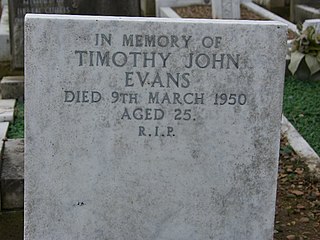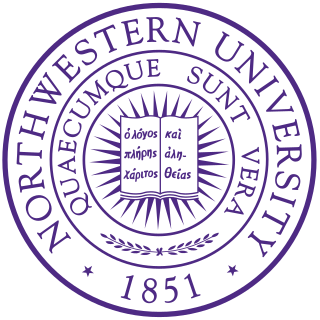Related Research Articles

Forensic science, also known as criminalistics, is the application of science principles and methods to support legal decision-making in matters of criminal and civil law.

A polygraph, often incorrectly referred to as a lie detector test, is a pseudoscientific device or procedure that measures and records several physiological indicators such as blood pressure, pulse, respiration, and skin conductivity while a person is asked and answers a series of questions. The belief underpinning the use of the polygraph is that deceptive answers will produce physiological responses that can be differentiated from those associated with non-deceptive answers; however, there are no specific physiological reactions associated with lying, making it difficult to identify factors that separate those who are lying from those who are telling the truth.

A detective is an investigator, usually a member of a law enforcement agency. They often collect information to solve crimes by talking to witnesses and informants, collecting physical evidence, or searching records in databases. This leads them to arrest criminals and enable them to be convicted in court. A detective may work for the police or privately.
Miranda v. Arizona, 384 U.S. 436 (1966), was a landmark decision of the U.S. Supreme Court in which the Court ruled that law enforcement in the United States must warn a person of their constitutional rights before interrogating them, or else the person's statements cannot be used as evidence at their trial. Specifically, the Court held that under the Fifth Amendment to the U.S. Constitution, the government cannot use a person's statements made in response to an interrogation while in police custody as evidence at the person's criminal trial unless they can show that the person was informed of the right to consult with a lawyer before and during questioning, and of the right against self-incrimination before police questioning, and that the defendant not only understood these rights but also voluntarily waived them before answering questions.

Interrogation is interviewing as commonly employed by law enforcement officers, military personnel, intelligence agencies, organized crime syndicates, and terrorist organizations with the goal of eliciting useful information, particularly information related to suspected crime. Interrogation may involve a diverse array of techniques, ranging from developing a congenial rapport with the subject to torture.
The National Institute of Justice (NIJ) is the research, development, and evaluation agency of the United States Department of Justice (DOJ).
The Reid technique is a method of interrogation after investigation and behavior analysis. The system was developed in the United States by John E. Reid in the 1950s. Reid was a polygraph expert and former Chicago police officer. The technique is known for creating a high pressure environment for the interviewee, followed by sympathy and offers of understanding and help, but only if a confession is forthcoming. Since its spread in the 1970s, it has been widely utilized by police departments in the United States.
Forensic psychology is the application of scientific knowledge and methods to help answer legal questions arising in criminal, civil, contractual, or other judicial proceedings. Forensic psychology includes research on various psychology-law topics, such as jury selection, reducing systemic racism in criminal law; eyewitness testimony, evaluating competency to stand trial; or assessing military veterans for service-connected disability compensation. The American Psychological Association's Specialty Guidelines for Forensic Psychologists reference several psychology subdisciplines, such as social, clinical, experimental, counseling, and neuropsychology.

A miscarriage of justice occurs when an unfair outcome occurs in a criminal or civil proceeding, such as the conviction and punishment of a person for a crime they did not commit. Miscarriages are also known as wrongful convictions. Innocent people have sometimes ended up in prison for years before their conviction has eventually been overturned. They may be exonerated if new evidence comes to light or it is determined that the police or prosecutor committed some kind of misconduct at the original trial. In some jurisdictions this leads to the payment of compensation.

The CSI effect describes the various ways in which the exaggerated portrayal of forensic science on crime television shows such as CSI: Crime Scene Investigation influences public perception. The term was first reported in a 2004 USA Today article describing the effect being made on trial jurors by television programs featuring forensic science.

Offender profiling, also known as criminal profiling, is an investigative strategy used by law enforcement agencies to identify likely suspects and has been used by investigators to link cases that may have been committed by the same perpetrator. The originator of modern profiling was FBI agent Robert Ressler. He defined profiling as the process of identifying all psychological characteristics of an individual and forming a general description of their personality based on an analysis of crimes they have committed.

The Northwestern University Pritzker School of Law is the law school of Northwestern University, a private research university. The law school is located on the university's Chicago campus. Northwestern Law is considered part of the T14, an unofficial designation in the legal community as the best 14 law schools in the United States.
Lie detection is an assessment of a verbal statement with the goal to reveal a possible intentional deceit. Lie detection may refer to a cognitive process of detecting deception by evaluating message content as well as non-verbal cues. It also may refer to questioning techniques used along with technology that record physiological functions to ascertain truth and falsehood in response. The latter is commonly used by law enforcement in the United States, but rarely in other countries because it is based on pseudoscience.
The following outline is provided as an overview of and topical guide to forensic science:
The following outline is provided as an overview of and introduction to law enforcement:

John Augustus Larson was a police officer and forensic psychiatrist and became famous for his invention of the modern polygraph device used in forensic investigations. He was the first American police officer with an academic doctorate and to use the polygraph in criminal investigations. After a famed career in criminal investigation, he died of a heart attack in Nashville, Tennessee, at the age of 73.

Glove prints, also sometimes described as gloveprints or glove marks, are latent, fingerprint-like impressions that are transferred to a surface or object by an individual who is wearing gloves.

The Luhansk State University of Internal Affairs named after Eduard Didorenko is a Ukrainian university in Luhansk.

Karen Franklin is an American forensic psychologist. For her doctoral dissertation, she conducted research on anti-gay violence. She has also published commentaries about sex crimes, primarily expressing her opposition to the use of the hebephilia and other diagnoses in sexually violent predator regulations. She received the 2012 Distinguished Scientific Achievement Award in Psychology and the Monette-Horwitz Trust Award in 2001.
Laura Nirider is an American attorney and legal scholar working as an associate professor of law and the co-director of the Center on Wrongful Convictions at Northwestern University Pritzker School of Law. An expert on law relating to false confessions, Nirider specializes in representing young people who confessed to crimes that it is thought they did not commit, and working to reform the process of police interrogation. Nirider's work gained international visibility following her involvement in several high-profile cases involving juvenile confessions. Her clients have included Brendan Dassey, whose case was profiled on the Netflix documentary Making a Murderer, and who is still in prison, and Damien Echols of the West Memphis Three, whose case was profiled on the HBO series Paradise Lost and the documentary West of Memphis, who was freed but still convicted under an Alford Plea. She also hosts a podcast on false confessions, entitled Wrongful Conviction: False Confessions.
References
- ↑ Wolffram, Heather (March 2021). "Teaching Forensic Science to the American Police and Public: The Scientific Crime Detection Laboratory, 1929-1938". Academic Forensic Pathology. 11 (1): 52–67. doi:10.1177/19253621211002515. ISSN 1925-3621. PMC 8129488 . PMID 34040685.
- ↑ "Fred Inbau | Obituary | The Economist". The Economist . June 11, 1998. Archived from the original on 2020-09-26. Retrieved 2024-09-15.